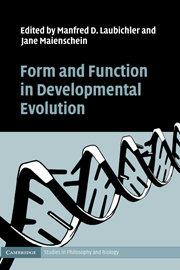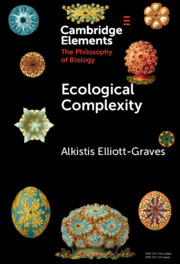Complexity and the Function of Mind in Nature
This book explains the relationship between intelligence and environmental complexity, and in so doing links philosophy of mind to more general issues about the relations between organisms and environments, and to the general pattern of 'externalist' explanations. The author provides a biological approach to the investigation of mind and cognition in nature. In particular he explores the idea that the function of cognition is to enable agents to deal with environmental complexity. The history of the idea in the work of Dewey and Spencer is considered, as is the impact of recent evolutionary theory on our understanding of the place of mind in nature.
- Brings together philosophy of mind and evolutionary biology in an exciting new way
- Looks at work of Dewey on this topic, and discusses the relationship of pragmatism and naturalistic philosophy
Product details
March 1996Hardback
9780521451666
328 pages
236 × 160 × 26 mm
0.648kg
Available
Table of Contents
- Part I. Foundations:
- 1. Naturalism and teleology
- 2. Externalism and internalism
- 3. Spencer’s Version
- 4. Dewey’s version
- 5. On construction
- 6. The question of correspondence
- Part II. Models:
- 7. Adaptive plasticity
- 8. The signal detection model
- 9. Complex individuals, complex populations.










